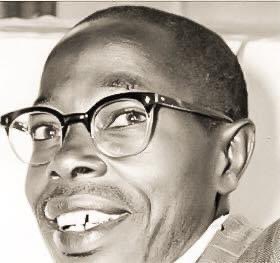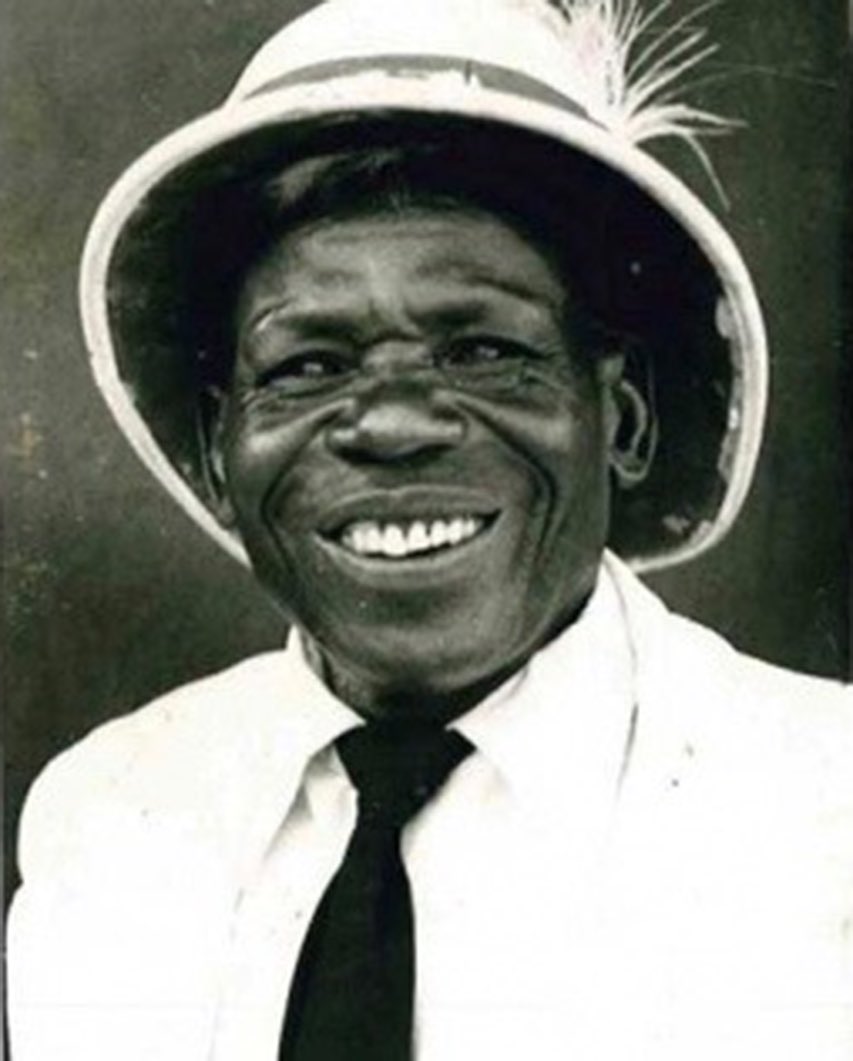#HistoryKeThread: Rawson Macharia: Bribed To Frame Jomo Kenyatta
————
The colonial government was so short of evidence with which to convict Mzee Kenyatta, that they turned to a "frail little shopkeeper" - as described Rawson Macharia - the main prosecution witness.
————
The colonial government was so short of evidence with which to convict Mzee Kenyatta, that they turned to a "frail little shopkeeper" - as described Rawson Macharia - the main prosecution witness.

During the trial, Rawson testified that Mzee was his Mau Mau oath administrator. He also gave detailed descriptions of how the oathing itself was carried out.
He described how he was stripped naked, made to drink human blood and make ritualistic movements on banana leaves.
He described how he was stripped naked, made to drink human blood and make ritualistic movements on banana leaves.
For his testimony and subsequent conviction of Mzee Kenyatta, the colonial government rewarded him with a return trip to England, and a scholarship to undertake a 2-year public administration course.
In November of 1959, no fewer than six years after Kenyatta had been jailed, Macharia sensationally swore an affidavit under the aegis of the People Convention Party, whose party leader was Tom Mboya. 

In the affidavit, he claimed that he had been paid to lie. He had been paid £1,500 and 'assisted' to open a pub, he claimed.
He also showed newspaper editors in Nairobi a letter authored before the start of the Kenyatta trial by the then Attorney General. The letter offered Macharia, in exchange for his testimony, a round trip to England and a government job when he returned.
It also promised the afore-cited scholarship.
When challenged, the colonial government admitted that they paid Macharia, who like Mzee hailed from Gatundu, a retainer of £29 per month, but insisted that the payment was for him to testify, not lie.
When challenged, the colonial government admitted that they paid Macharia, who like Mzee hailed from Gatundu, a retainer of £29 per month, but insisted that the payment was for him to testify, not lie.
Macharia's revelations were met with outrage by civil liberty leaders and pro-independence advocates around the world.
Amidst the shock following the revelations, one of the members of Mzee Kenyatta's legal team, F.R.S. de Souza, wrote an open letter that demanded investigations into the revelations by the prosecution witness.
as TIME magazine described Rawson Macharia*
The authorities did not accede to this demand.
Upon independence, Mzee bore no ill will against Macharia, who led a quiet, withdrawn life until 2008, when he was knocked down by a motorcycle along Thika Road, and died.
In 1991, Macharia authored a book, The Truth About The Trial of Jomo Kenyatta.
In 1991, Macharia authored a book, The Truth About The Trial of Jomo Kenyatta.
• • •
Missing some Tweet in this thread? You can try to
force a refresh

 Read on Twitter
Read on Twitter










